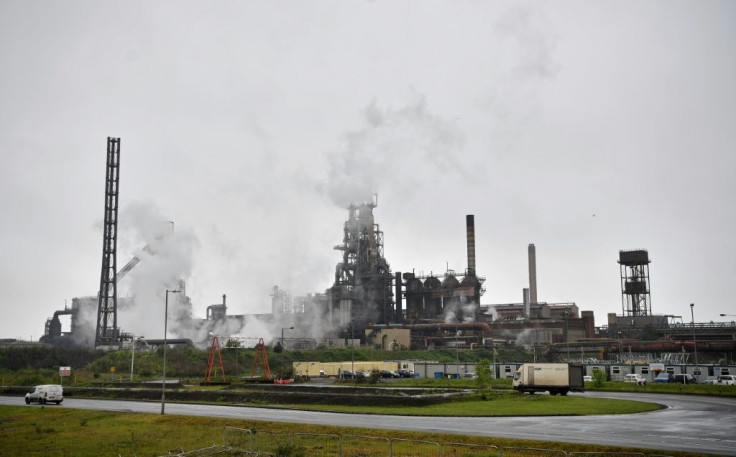Britain’s Biggest Steelmaker Seeking $622 Million Bailout From Government

KEY POINTS
- Tata Steel, is a British subsidiary of India’s Tata Steel Ltd.
- Tata Steel employs more than 8,000 people in the U.K., nearly half of them at the Port Talbot steelworks in south Wales
- About 1,500 of its UK workforce have already been furloughed
Britain’s biggest steel producer, Tata Steel, is seeking a £500 million ($622 million) bailout loan from the government as the coronavirus pandemic halts production.
Tata Steel, a British subsidiary of India’s Tata Steel Ltd., employs more than 8,000 people in the U.K., nearly half of them at the Port Talbot steelworks in south Wales. The company has reached out to both the London and Welsh governments for help. Tata Steel officials have entered into discussions with the Treasury and the Department of Business, Energy and Industrial Strategy.
The steelmaker reportedly wants a commercial loan that would be repayable when steel demand recovers.
"We continue to have ongoing discussions with Tata Steel about what support it needs to sustain a strong steelmaking presence in the U.K. and in Wales," said a spokesperson for the Welsh government.
Stephen Kinnock, a Labour MP for Aberavon in Wales, urged the government to increase the limit on its Coronavirus Large Business Interruption Loan Scheme, or CLBILS, to allow for funds to be distributed to Tata Steel.
“The government [CLBILS] is capped at £50 million, which is only one-tenth of what Tata Steel believes will be the cashflow impact on the company over a six-month period,” he said. “Will the government now urgently take steps to lift the loan cap to a level that will give our steel industry a fighting chance of surviving this crisis? Tata Steel estimates that it will take around six months to get back to business as usual, or as close as possible to it and the challenge they have is cashflow over that six-month period.”
In reply, the foreign secretary, Dominic Raab, who is standing in for British Prime Minister Boris Johnson while he recuperates from the virus, stated: “I know that the chancellor [Rishi Sunak] is looking carefully at the steel sector in the honorable gentleman’s constituency, and at all those who are not directly benefiting from this particular scheme to ensure that in the round we are providing the measures that we need in a targeted way to support all the different crucial elements of the economy.”
Kinnock later tweeted: “Steel underpins everything from cars to construction, to life-saving equipment for our National Health Service. There can be no post-pandemic economic recovery without steel. The U.K. government must urgently step up and enable the loan, to solve this temporary cash-flow crisis.”
Even before the pandemic, Tata Steel had been struggling. In January of this year, Natarajan Chandrasekaran, chairman of Tata Steel's Indian parent company, told The Sunday Times newspaper: "I need to get to a situation where at least the [Port Talbot] plant is self-sustaining. Whether it is in the Netherlands or here, we can't have a situation where India keeps funding the losses just to keep it going."
Last month, Tata Steel said that "a sudden drop in European steel demand after a number of steel-using manufacturers paused production, including European car manufacturers" had led it to cut production at some of its mills.
About 1,500 of its UK workforce have already been furloughed under the Coronavirus Job Retention Scheme.
"A number of European governments have introduced job retention schemes to support businesses impacted by coronavirus which Tata Steel will be using wherever appropriate.” Tata Steel said. "This includes a scheme in the U.K. which will lead to some employees being asked to take temporary leave. As a responsible employer, we will use this and other national schemes while available, and where our own activities are much reduced. It will allow us to retain the skills and experience we need for when steel demand recovers."
British Steel, which was recently sold to Jingye Group, a Chinese conglomerate, received hundreds of millions of pounds of taxpayer funds after it sank into liquidation almost a year ago.
© Copyright IBTimes 2025. All rights reserved.





















